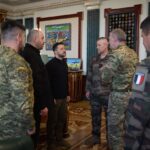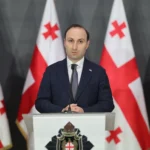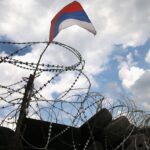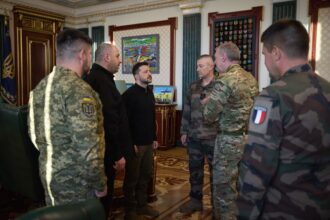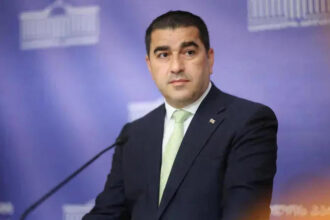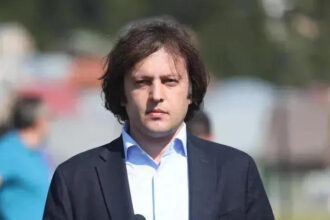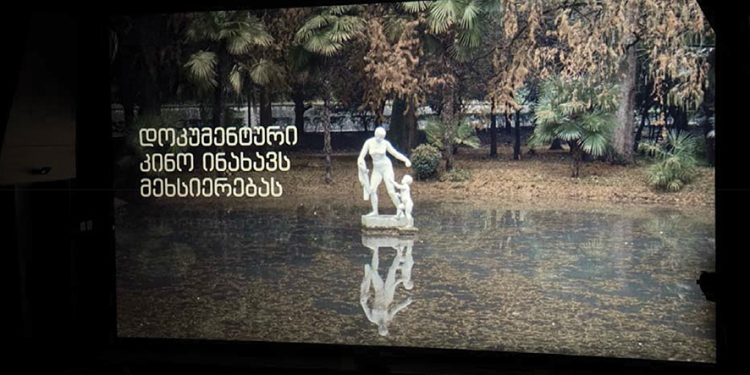The DOCA Film Club unveiled an exclusive program that explores the world of Georgian documentary films from the 1990s to early 2000s. This is a rare opportunity to see films that document Georgia’s transformation from Soviet republic into independent nation. The program will take place at Amirani Cinema on Tuesdays at 19:00, until the end of the month. It features works that are nearly impossible to find online. Many of them have never been seen on the big screen before and many of them will be subtitled into English for the very first time. The curators Lika Bedoshvili and Luka Glurjidze invite viewers to experience the everyday lives of Georgians, their challenges and hopes during one of Georgia’s most pivotal moments.
A Window into the Past
This program portrays Georgia’s struggle to find stability and identity within a landscape of shifting economic realities, political realities and social upheaval. The films selected cover themes such as emigration and cultural resilience. They also explore the transformation of Georgian culture in response to newfound freedom, but also its disillusionment. The documentaries are a collection of filmmakers who have a keen and empathetic eye on issues that are still relevant today. From women’s voices to nation identity, to daily survival to the persistence in hope, the filmmakers have a sharp, empathetic view.
The films that will be screened in November and December include such landmarks as Zahesi 708, a meditation on industrial demise, Women by Vazha Zubashvili (90), an in-depth look at the lives and struggles of Georgian women, The Bridge (2005), Altzaney (2009), by Nino Arsenishvili and Vano Orjonikidze, which explores connections and divides within a country grappling with its newfound independence, and Power trip, a documentary
This program, which focuses on films that deal with everyday survival, gender roles and the effects of emigration as well as economic uncertainty, revives a valuable archive that reflects the social reality of the time, but also the enduring resilience in Georgian society.
The program’s opening on November 4th introduced audiences to a carefully curated selection of films that explored the 1990s – a decade marked with upheavals and scarcity. The theme of the evening was ‘The Screen That Disappeared and Visual Archive: A Window through the Past, A Portrait of Life in the 90s.’ The night’s lineup presented a multifaceted picture of life in a nation adapting to radical changes, where questions of survival, collective memory, and identity took center stage.
Empty Shelves, Frayed Nerves and the Silent Desperation that Economic Collapse Brings
The 10-minute short titled ‘The Human and the Law’ (1991) directed by R. Khuntsoria and G. Rogava and V. Begoidze confronts viewers with the stark realities of the early 1990s. This short but powerful work focuses the camera on empty grocery shelves and endless lines, which are symbols of both material deprivation as well as the sense of loss felt by the entire society. The human and law captures a sense of helplessness. It shows weary faces in lines and shopkeepers struggling with the “possibilities or impossibilities of selling basic goods“. This document is not only a reflection of an economic crisis, but also the spiritual toll that it took on a once centrally planned society.
Philosophy and Loss: Reflections of a Nation Through the Voice of Merab Mamrdashvili
Nikoloz Drozdov’s ‘The Way Home’ offers a radically different, but equally profound view of the 1990s. This 19-minute film captures Merab Mamardashvili’s last recorded interview, in which he shares his reflections on the identity crisis that is facing both individuals and the nation at large. Mamardashvili, filmed just before his death in 2008, transcends the immediate political turmoil to address universal questions of freedom, morality and the search for meaning during turbulent times. His reflections are a kind philosophical reckoning of the nation as he ponders not only the Georgian identitiy but also the values that will define a future beyond Soviet confines. In Mamardashvili’s words, viewers discover a nation that is searching for its “way home.”
Hope on Wheels – Youth, Skateboards and the Resilient Spirit of Georgia’s Next Generation
Omar Gvasalia’s ‘Meet our children” takes on a new tone, one that celebrates youth’s indomitable spirit. This 24-minute documentary features candid conversations with teenagers. They are able to freely express their concerns and dreams, while skateboarding scenes provide moments of carefree happiness in difficult times. Meet Our Children, unlike other films that portray survival as a never-ending challenge, gives a face to a generation who would eventually grow up in independent Georgia. Gvasalia’s film serves as a reminder that even in the most bleak environments, joy and creativity can be found.
Sport, Identity and Independence: Georgia’s First Steps in the World Arena
Alexander Zhgenti explores national identity through the lens of sport in his film ‘Do We Need the USSR Championship in Football?’ This 29-minute documentary explores the debate surrounding the USSR football champion as Georgia begins its journey towards independence, showing the early steps in forging an uniquely Georgian identity. Zhgenti shows how football can be a unifying factor, an emblem of identity and solidarity in the face of the disintegration between political ties. The film captures how tradition and change interplay, showing that even cultural pastimes such as football became battlegrounds to win the hearts of a nation.
An Archive of Resilience and Memory
Each documentary shown on opening night is more than a historical record. It is a creative act, a witness and a survival of a time in which both individuals and a nation were looking for their footing. The series is more than a survey of academic literature; it’s an immersive experience which invites viewers to connect to the stories of those that lived through Georgia’s transition. The program is based upon extensive research and can be used as an archive project or an active dialogue about the past.
The Amirani Cinema’s Tuesday screenings are an immersive act of memory, a bridge between generations. These films invite Georgian and international audiences to reflect on how socio-political changes shape lives, challenge identity, and spark the need for expression.
The DOCA Film Club series of Georgian documentaries from the 1990s and 2000s is a powerful gesture of cultural reclamation. It is a curated journey that takes viewers through two decades of struggle, resilience and hope in a nation. These films bring back memories that were once on the verge of fading, proving their relevance and resonance in today’s Georgia, and beyond.
By Ivan Nechaev
Tags: Altzaney (2009)DOCA Film ClubGeorgian documentaries from the 1990s to 2000sIvan NechaevLika GlurjidzeLuka BeoshviliNino OrjonikidzeTamuna Karumidze (2005)The bridge (2005)Vano ArsenishviliVazha Zubashvili (90)Zahesi 708
Read More @ georgiatoday.ge
